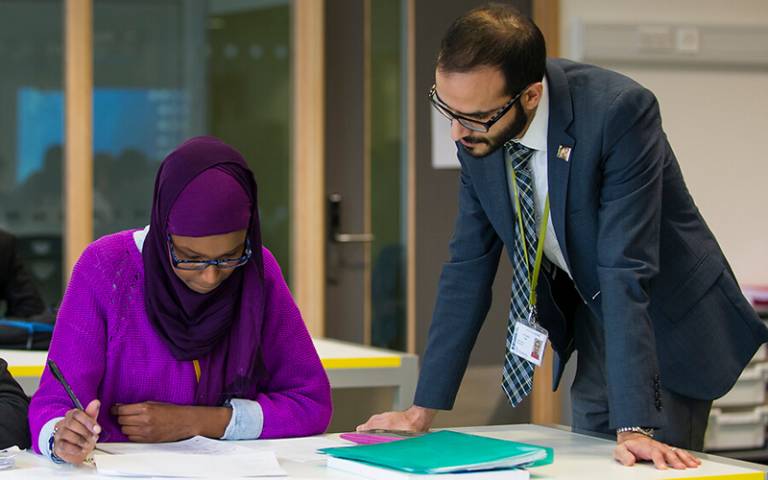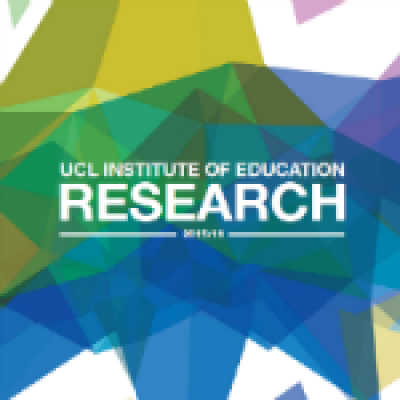Pupils who 'try, try and try again' perform better, conference at UCL Institute of Education reveals
26 June 2018
The adage 'if at first you don't succeed then try, try and try again' has some truth in it, according to new research presented at the London Festival of Learning, held at UCL Institute of Education.

The team from Linköping and Lund universities in Sweden used a digital history game to assess how perseverance affected pupils' performance. They found that while those who returned to their task and renewed their efforts after failing did significantly better.
The students who kept on trying did not appear to be cleverer than those who gave up when they were unable to complete a task correctly, or to be trying harder. But they solved significantly more problems at higher levels - even if they initially stopped and took a break after failing.
The paper builds on a growing body of research which shows that those with a 'growth mindset' - the belief that effort will lead to improvement as opposed to a feeling that one's abilities are fixed - are more successful at school.
The researchers say the findings could be used to help build smart systems which can bolster the less persistent students' efforts and enable them to learn better.
The London Festival of Learning is taking place from June 22-30 at UCL Institute of Education (IOE). The event comprises the annual conferences of the International Conference of the Learning Sciences (ICLS), Learning@Scale and Artificial Intelligence in Education (AIED), attracting 1,200 delegates and academics from around the world and presenting more than 500 research publications.
The study looked at the experiences of 108 pupils aged 10 to 12 while playing a digital history game. The tasks became increasingly difficult - so all were bound to fail at some point. When they did so they were offered the choice of moving on to another task, trying again immediately or trying again after a short break. A character in the game then questioned them about the reasons for the decisions they made.

In the game, children had to prove their historical knowledge and ability to learn in order to assist an elf named Timy in his quest to win a place in the team at the 'Castle of Time.'
Each time a student failed, he or she was presented with five choices: to continue on the same mission, to have a less difficult mission, to have another on the same level, to have a more difficult mission or to take a break to play another game before continuing.
The study consisted of four lessons over 2-3 weeks with all lessons held in the students' ordinary classroom with their teacher present. At the end they filled in a questionnaire which asked how hard they had found the game, how much they thought they had learned, whether they had enjoyed it and how much effort they felt they had made.
There were no significant differences between the different perseverance groups in terms of effort, difficulty, learning, and fun. And the less persistent children were just as likely as their more persistent peers to feel they had put a lot of effort into the game.
But the students who persevered the most performed significantly better - they completed more missions and went further up the scale in terms of the difficulty of the tasks they completed.
Agnetha Gulz from Lund University will present the work at the International Conference of the Learning Sciences, which forms part of the London Festival of Learning. She says the research has important implications: "All of us at some point will find ourselves in a situation where we need to persevere in order to master a novel or difficult task," she says. "And while perseverance doesn't guarantee success, giving up certainly guarantees failure.
"This understanding could be used to help design educational software that scaffolds - and nudges - students into productive perseverance. An intelligent adaptive system could identify students' behavioural patterns of perseverance and their progress and adapt accordingly."
Media contact
Dorothy Lepkowska, EDUCATE
d.lepkowska@ucl.ac.uk
+44 (0)7798 614256
 Close
Close


